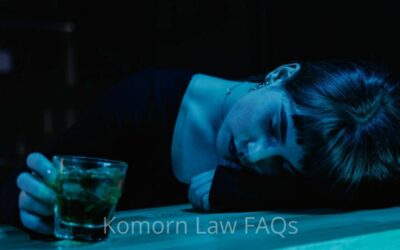Squatters and You
Squatting, in one definition is the act of occupying a property without legal permission, can be a headache for both property owners and squatters themselves. Sorry to cause you a such a headache squatter.
Michigan has specific laws addressing squatting, offering some protection to owners while outlining potential consequences for squatters.
Here’s One…
MCL 750.553: Criminal Trespass
Michigan criminalizes squatting in single-family dwellings and one or both units in a two-family dwelling through MCL 750.553. This law defines “occupies” as physically living within the structure.
Here’s a breakdown of the key points:
- No Consent: The squatter must have never had the owner’s consent to occupy the property.
- Penalty: A first offense is considered a misdemeanor punishable by a fine of up to $5,000 per dwelling unit occupied, imprisonment for not more than 180 days, or both. Subsequent offenses are felonies with steeper penalties.
- Exceptions: The law doesn’t apply to guests or family members of the owner or a tenant.
This statute empowers property owners to pursue legal action against squatters, potentially leading to their removal and facing criminal charges. While they destroy your property and cost you legal fees, house and utility payments.
Self-Help Eviction
Michigan offers a unique remedy for property owners: self-help eviction.
Unlike most states, Michigan allows owners to take specific actions to encourage squatters to leave without involving law enforcement.
However, crucial limitations exist:
- Limited Scope: Self-help measures are only applicable to situations covered by MCL 750.553 (single-family and two-family dwellings).
- Actions: These measures can involve changing locks, shutting off utilities deemed non-essential for safety and health (like electricity or heat), or removing the squatter’s belongings after they’ve been properly evicted (typically through a legal notice).
Important Cautions:
- Legality: Any self-help actions must strictly adhere to legal boundaries. Improper actions can lead to lawsuits from the squatter. Consulting a lawyer before taking any steps is highly recommended.
- Tenant vs. Squatter: These measures cannot be used against tenants with a valid lease agreement. Evicting tenants requires following formal eviction procedures.
MCL Adverse Possession vs. Squatting
It’s important to distinguish squatting from adverse possession, another legal concept related to occupying land. MCL 600.5801 [MCL 600.5801] outlines adverse possession, where someone can potentially gain ownership of a property through extended, uninterrupted, and hostile possession that meets specific criteria. Squatting, however, is generally temporary and lacks the “hostile” element required for adverse possession.
Adverse Possession in Michigan – Can Someone Claim Your Property?
Taking Action – Since You Can’t Call in the A Team
If you suspect someone is squatting in your property, here are some steps to consider:
- Contact Law Enforcement: For situations covered by MCL 750.553, involving the police can initiate the process of removing the squatter and potentially pressing charges.
- Seek Legal Counsel: An attorney can guide you through the legal options available, including navigating self-help measures or pursuing formal eviction procedures.
Client Was Caught With Brass Knuckles – What’s the Law?
Michigan Criminal Laws FAQs Brass KnucklesGetting caught with brass knuckles in Michigan can lead to serious legal trouble. While some states have more lenient laws, Michigan takes a strict stance on these types of weapons. If you or someone you know faces charges...
Resisting an Unlawful Arrest in Michigan
Michigan Criminal Laws FAQs Resisting an Unlawful Arrest in MichiganThe question of whether you can legally resist an unlawful arrest in Michigan is complex, and the answer is generally no, with very limited exceptions. While the idea of defending oneself against an...
The Law
750.553 Occupancy of building without consent; violation; penalty; exception.
Sec. 553.
Real Questions from Real Calls
Question: I am squatting in a house in Michigan and was threatened by the owner. What can I do?
In Michigan, squatting is illegal and the owner has the right to take action to get you out. Here’s what you should know:
Your Legal Situation:
- Squatting is a Crime: Michigan’s MCL 750.553 criminalizes squatting in single-family homes and one or both units in a two-family dwelling [MCL 750.553]. Since you’re squatting, the owner has legal grounds to pursue your removal.
- Threats vs. Legal Action: While the owner may have threatened you, they can’t physically remove you themselves. However, they can involve the police or initiate legal eviction proceedings.
What You Can Do:
- Leave Immediately: This is the safest and most advisable option. There’s a high chance you’ll be evicted if the owner pursues legal channels, and you could face criminal charges.
- Seek Shelter Assistance: Contact local homeless shelters or social service agencies for temporary housing or resources to help you find permanent housing.
- Legal Aid: Consider seeking legal aid from organizations specializing in tenant rights. They can offer advice on your options and potential defenses (if any) based on the specifics of your situation.
Important Notes:
- Self-Help Eviction: Michigan allows self-help eviction for some situations, but it’s a complex process with legal risks. It’s best to avoid this and let the legal system handle the eviction.
- False Claims of Tenancy: Don’t attempt to falsely claim you have a lease agreement. This is a crime and could worsen your situation.
Here are some resources that can help:
- Michigan Legal Services Helpline: 1-888-773-8255
Related Articles
Client Was Caught With Brass Knuckles – What’s the Law?
Michigan Criminal Laws FAQs Brass KnucklesGetting caught with brass knuckles in Michigan can lead to serious legal trouble. While some states have more lenient laws, Michigan takes a strict stance on these types of weapons. If you or someone you know faces charges...
Resisting an Unlawful Arrest in Michigan
Michigan Criminal Laws FAQs Resisting an Unlawful Arrest in MichiganThe question of whether you can legally resist an unlawful arrest in Michigan is complex, and the answer is generally no, with very limited exceptions. While the idea of defending oneself against an...
Criminal Law FAQs – Assault with Intent to do Great Bodily Harm Less Than Murder (AWIGBH)
Michigan Criminal Laws FAQs Assault with Intent to do Great Bodily Harm Less Than MurderAccording to Michigan State Law (Michigan Compiled Laws - MCL), Assault with Intent to do Great Bodily Harm Less Than Murder (AWIGBH) is a serious felony offense defined in MCL...
Criminal Law FAQs – Operating a Vehicle with a High BAC
Michigan Criminal Laws FAQs Super Drunk (High Breath Alcohol Content)Operating a Vehicle with a High BAC (Super Drunk) - MCL 257.625(1)(c)FAQ 1: What BAC level qualifies as "High BAC" or "Super Drunk" in Michigan? Answer: In Michigan, operating a vehicle with a blood...
More Posts
Criminal Law FAQs – Traffic Offenses
Michigan Criminal Laws FAQs Traffic OffensesAccording to Michigan State Law (Michigan Compiled Laws - MCL), Traffic Offenses encompass a wide range of violations...
Criminal Law FAQs – Drunk and Disorderly
Michigan Criminal Laws FAQs Drunk and DisorderlyAccording to Michigan State Law (Michigan Compiled Laws - MCL), there isn't a specific statute that solely defines...
Criminal Law FAQs – Drinking Alcohol or Smoking Marijuana and Driving
Michigan Criminal Laws FAQs Operating a Motor Vehicle Under The InfluenceWalking is cool... For fun and excercise. Not because you lost your license. Don't do the crime...
Criminal Law FAQs – Probation Violations
Michigan Criminal Laws FAQs Theft CrimesAccording to Michigan State Law (Michigan Compiled Laws - MCL), a Probation Violation occurs when a person who has been...
Michigan lawmakers want to revive “junk science” roadside drug testing
The Roadside Drug Test...AgainHouse bills 4390 and 4391The proposed House bills 4390 and 4391 would enable law enforcement to administer tests aimed at assessing driver...
Criminal Law FAQs – Theft Crimes
Michigan Criminal Laws FAQs Theft CrimesAccording to Michigan State Law (Michigan Compiled Laws - MCL), Theft Crimes generally involve the unlawful taking of someone...
Criminal Law FAQs – Domestic Violence
Michigan Criminal Laws FAQs Domestic ViolenceAccording to Michigan State Law, Domestic Violence is not a standalone criminal offense but rather a designation applied to...
Criminal Law FAQs – Assault and Battery
Michigan Criminal Laws FAQs Assault and BatteryAccording to Michigan State Law, Assault and Battery are distinct but often related offenses. There isn't one single...
Other Bodily Fluid House Hearing – HB-4391- Update 5-22-25
Michigan House HearingHB-4391 Saliva Test Update 5-22-25Watch the hearing or read the summary.Click here or image below to see videoFYI: Marijuana although voted to be...
Criminal Law FAQs – Marijuana Offenses
Michigan Criminal Laws FAQs Marijuana OffensesFAQ 1: Is recreational marijuana legal in Michigan? Answer: Yes, recreational marijuana is legal for adults 21 and over in...























